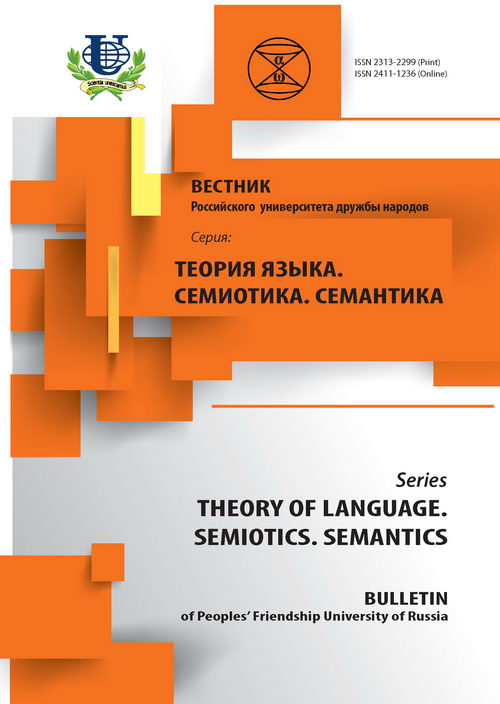A Comparative Analysis of General Slang in the Macrosystem of Sub-Standard English
- Authors: Gamov AN1
-
Affiliations:
- International Slav Institute (“ISI”)
- Issue: No 1 (2016)
- Pages: 151-163
- Section: ARTICLES
- URL: https://journals.rudn.ru/semiotics-semantics/article/view/7218
- ID: 7218
Cite item
Full Text
Abstract
The purpose of this article is to define the lexical and semantic meaning of common and special slang through practical and theoretical knowledge. In the research process the author has used an extensive scientific literature of domestic and foreign linguists to reveal fully the content and origin of the above concepts. In the article we applied methods of theoretical level, namely abstraction technique representing the cognitive process by which it is obtained a distraction from nonessential properties belonging to general and special slang in order to highlight their most important and regular features; method of generalization by which we establish the general properties and characteristics inherent in general slang and speech formations being an integral part of special slang; historic method contributing to construction of a scientific theory in which the concepts belonging to special slang are considered in chronological succession; hypothetical technique revealing a probable origin of social variants of special slang. Methods of empirical (practical) level: comparison by which it becomes possible to establish the correlation between vocabulary of general slang and vocabulary of special slang, as well as to identify the difference between them; experiment aimed at reproducing examples of general and special slang. The main results of this research lie in the fact that we were able to interprete the concepts explaining the content of general and special slang comprising speech formations including words of strictly specialized social - professional orientation. We made own division of lexical layers of Substandard English uniting words of general and special slang as well as revealed the universal character of general slang, its ability to penetrate not only from one to another lexical layer, but in a completely different, unfamiliar earlier language “area” with a similar sign system. In addition, we were able to reveal the mutual correlation between the general and special lexicon, as the part of general slang is relatively short - lived, and eventually forced out of the language due to the penetration of new words inherent in the particular social, professional or underclass people.
References
Supplementary files












